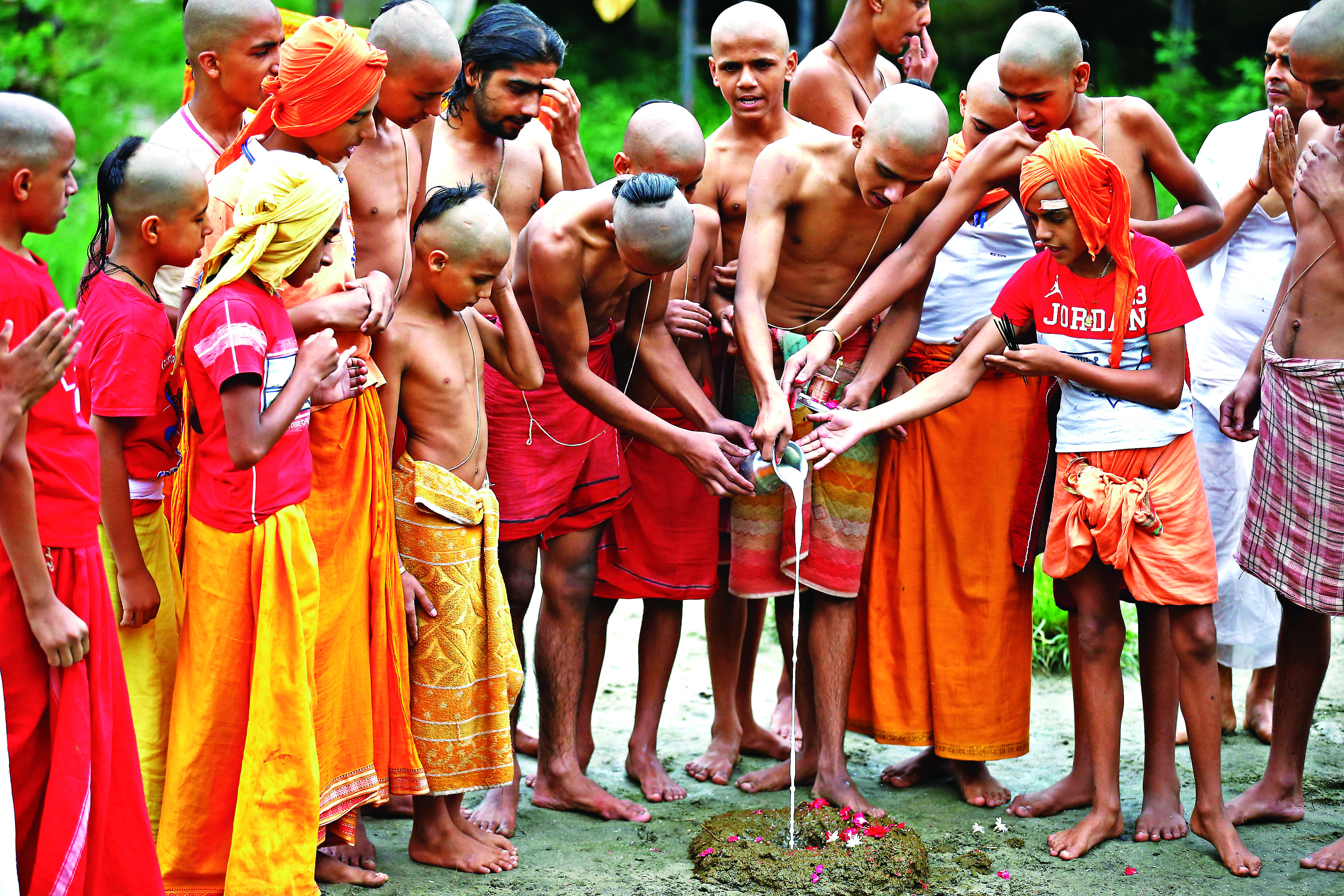Janai Purnima, Gunhi (Kwanti) Punhi, Raksha Bandhan being observed today
KATHMANDU: Janai Purnima, Gunhi Punhi (Kwanti) and Raksha Bandhan are being observed across various parts of the country today.
On Janai Purnima, Hindu ‘thread-wearing’ men renew their Janai (white cotton string worn diagonally from the left shoulder to the right waist). The priests tie Raksha Dhago, coloured thread around people’s wrist which is believed to protect them from evil.
It is believed that Indra, the king of gods was protected by a thread tied around his wrist by his Guru Brihaspati against the war with Bali, the king of demons. Prior to that, he was repeatedly defeated by Bali sans the thread.
The day is also known as Rishi Tarpani. Priests visit their Yajman (hosts) and bless them with the sacred thread.
Likewise, Kathmandu Valley observes Gunhi Punhi on this day. Kwati soup is relished by those celebrating as part of festivities today. Gunhi Punhi is thus popularly known as Kwati Punhi.
Newar farmers offer different food items to frogs on this day. Frogs are considered agents of the god of rainfall and such offerings made to please the frog is believed to increase the production of crops.
Besides the religious aspect, Gunhi Punhi falls between Shrawan and Bhadra. In older times, and even today, people are bothered by the common cold, cough, etc during the monsoon due to changing weather as new season approaches. It is believed that drinking soup of varieties of beans mixed together, rich with nutrients, provides the much-needed energy to fight off germs and strengthen immunity.
People also look at their reflection in the Kwati bowls. The reason for such an act is that inhaling steam from the soup is considered to be beneficial for one’s health.
Buddhists observe this day in commemoration of Lord Gautam Buddha's victory over evil power of lust. This episode is well-described in the Buddhist scripture ‘Lalitbistar’. A special fair takes place at Swayambhunath in Kathmandu on this day.
Similarly, Raksha Bandhan is observed today, mainly by the Madhesi people. Sisters offer rakhi (a talisman, a symbol of protection) to their brothers and tie it around their wrists. Raksha Bandhan or Rakhi is believed to protect the brothers while the brothers take a vow to protect their sisters.






